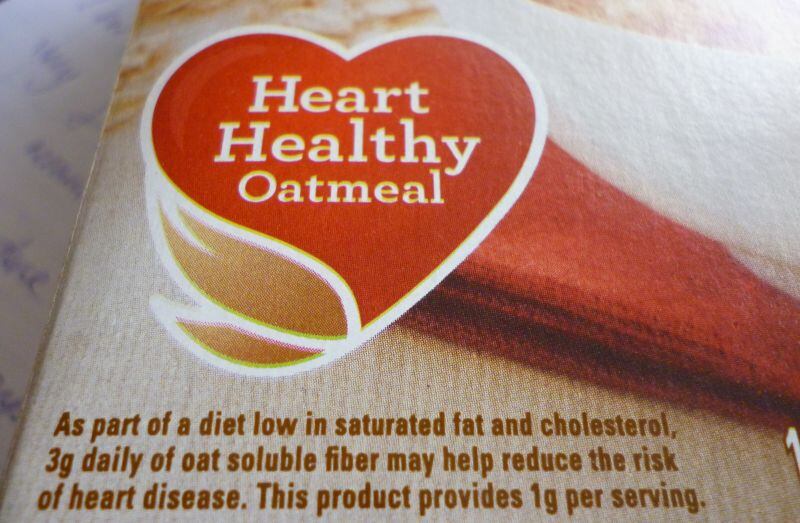The explosion of interest in omega-3 fatty acids - which may reduce blood clotting, triglycerides and blood pressure - has already steered messaging away from cholesterol in isolation, says Jeff Hilton, founder of BrandHive, a branding and marketing agency that specializes in natural products.
Omega-3 marketers have also popularized the notion that you can help your heart by tackling inflammation, a message that firms supplying olive polyphenols and cocoa flavanols are also increasingly talking to consumers about, he says.
“It’s not just about cholesterol anymore.”
Healthy circulation and healthy blood flow
Meanwhile, Provexis/DSM are promoting tomato extracts to reduce platelet aggregation (and in turn reduce the risk of blood clots), on a ‘healthy circulation’ and ‘healthy blood flow’ platform and Stratum Nutrition is promoting a chitin-glucan fiber Artinia to control the oxidation of LDL.
Both concepts - controlling LDL oxidation and inhibiting platelet aggregation - are also deemed beneficial to cardiovascular health by the European Food Safety Authority (EFSA), which issued positive opinions on the ability of olive oil polyphenols to protect LDL from oxidative damage, and the tomato extract Fruitflow to inhibit platelet aggregation some years ago.
And while CRP, OxLDL and platelets are not household terms, the concept of having supple healthy arteries or tackling “clots” as well as “clogs” is easy enough for shoppers to grasp, says Hilton.
People are trying to drill down a bit from phrases such as ‘supports cardiovascular health’, to more specific messages about arterial health

The ‘healthy arteries’ message also sits nicely between narrowly focused claims about cholesterol (which medics agree is only one risk factor of many, given that half of all heart attacks and strokes occur in people with normal LDL cholesterol) and an overly generic ‘heart-healthy foods’ slogan, he adds.
“I think people are trying to drill down a bit from phrases such as ‘supports cardiovascular health’, to more specific messages about arterial health.”
And this could also bring in a younger demographic, he claims.
“Talking about blood pressure or cholesterol tends to resonate more with the over 50s, who are more likely to have been diagnosed with these conditions. Whereas talking about keeping arteries healthy as a preventive measure could appeal to people in their 30s and 40s.”
PREDIMED study renews interest in the Mediterranean diet, nuts and extra virgin olive

As for ingredients that resonate with shoppers, omega-3s, whole grains, cocoa flavanols, nuts and olives all have a lot more potential in the foods and beverages arena, he says.
Nuts and olives also tie in nicely with renewed interest in the cardiovascular benefits of the Mediterranean diet following the publication of the large Spanish ‘Predimed’ study showing that people following an energy unrestricted plant-based diet supplemented with extra-virgin olive oil or nuts reduced their risk of a major cardiovascular event by 30% compared with people following a purely low-fat diet.
The results of the trial - which began in 2003 and ended in 2011 - were so dramatic that it was ultimately stopped ahead of time for ethical reasons, as the control group was clearly at such a disadvantage compared with volunteers in both intervention groups.
There has also been a recent flurry of papers looking into the effects of nuts on the heart, particularly walnuts, which have been linked to improvements in blood lipid profiles (lower LDL cholesterol), decreased blood pressure and reduced inflammation (lower levels of pro-inflammatory marker CRP).
Over 50s are looking for different cues
Lori Colman and Gina Miller, at branding and marketing agency CBD Marketing agree that oats, whole grains and nuts have the most mainstream appeal, while the ingredient industry has done a good job promoting omega-3s (although “most probably could not tell you if omega-3 is better than omega-6”, they say).
However, many more specialized ingredients in this space, from lycopene to barley beta-glucan - however ‘natural’ - may still “sound like strange or processed additives to consumers”, they argue.
However, you have a bit more scope to get into specifics with the over 50s, who are “looking for specifics on cholesterol, blood pressure, diabetes, digestive problems”, they say, whereas younger, healthier, consumers are “more likely to respond to positive overall health-friendly claims such as high fiber, whole grains, probiotics in dairy”.
‘Reactive’ vs ‘preventative’ consumers

People that know they have high blood pressure, LDL cholesterol or triglycerides are looking for different cues, agrees Ron Antriasian VP Sales & Business Development at Life Extension.
“There are typically two target audiences. The first is the ‘reactive’ customer with a condition that must be addressed; for example, an individual with high LDL cholesterol who is looking for a healthier and safer alternative to statins.
“The other is the ‘preventative’ customer: They have no current conditions, and may be otherwise healthy, but either they have a family history of heart disease and wish to prevent it, or they simply wish to take a proactive approach to their health. The former customer will likely be looking for condition-specific products, while the latter will be seeking total cardiovascular support.
“Due to increased awareness of heart issues, availability of information to make informed choices, and a desire to simply live longer, healthier lives, there is a much stronger effort by the younger audience to start taking steps now to try to minimize future cardiovascular health risks”, he adds.
From a marketing perspective, however, the challenge is to find messages that do not fall foul of regulatory guidelines, and strike a balance between being too generic and too specific/scary/medical, he says.
“While the savvy customer will comprehend health issues with arterial stiffness, endothelial function and platelet aggregation, we’re not yet at the point where those messages resonate with the general public, and therefore marketing efforts which discuss such markers could confuse or intimidate some buyers.”
